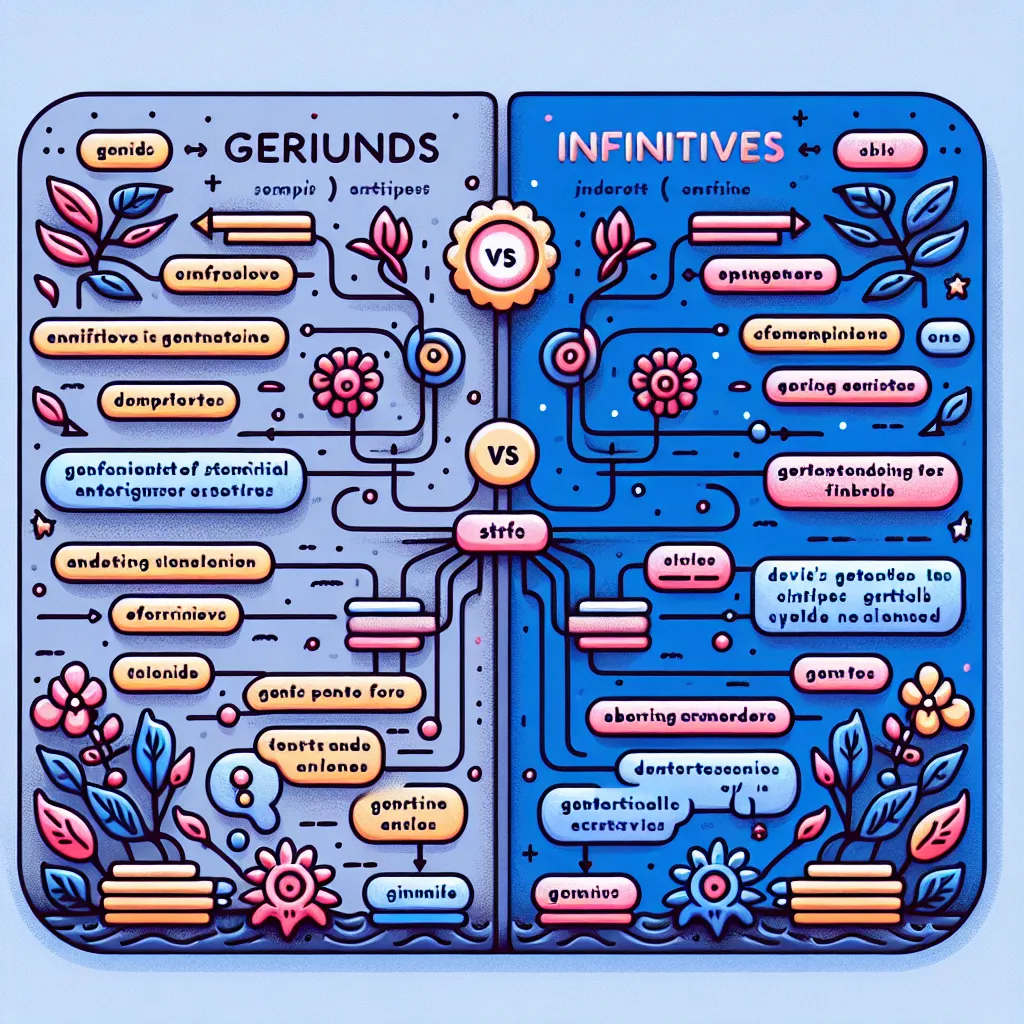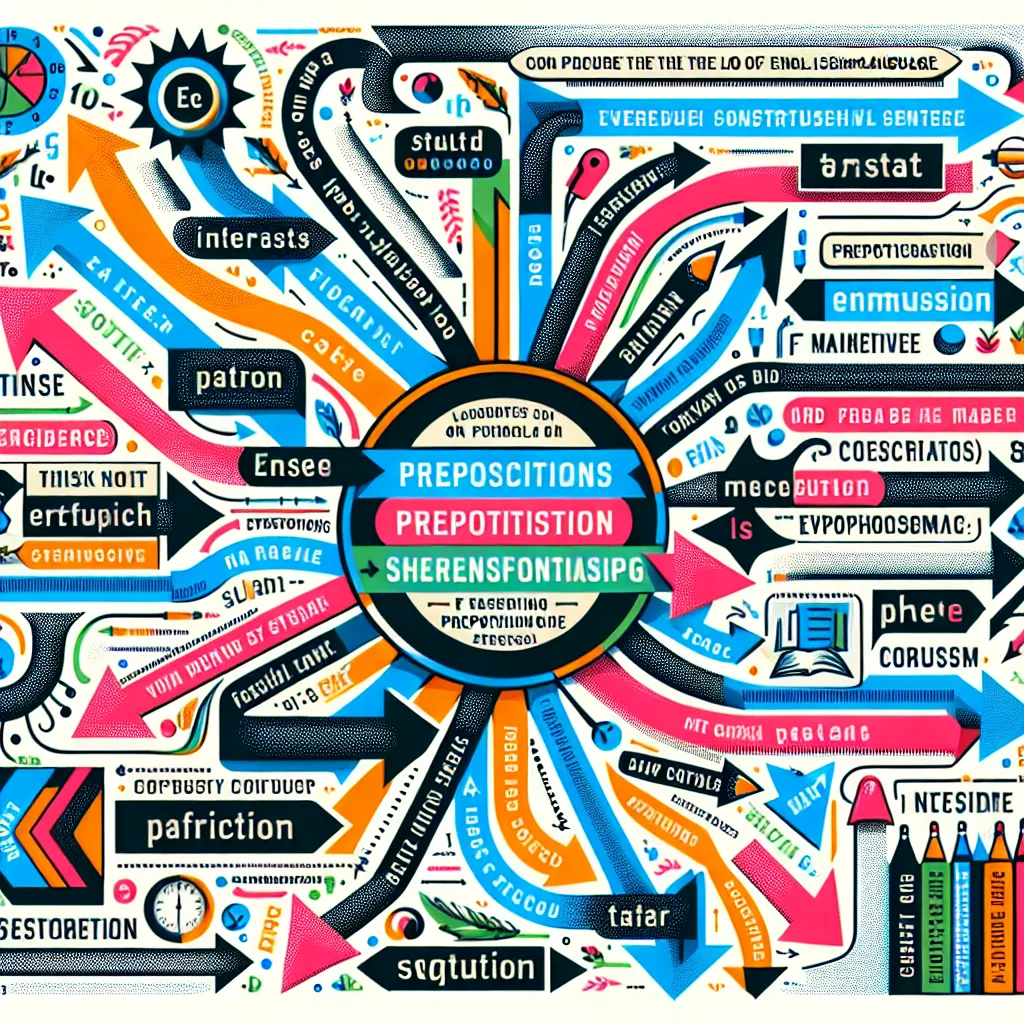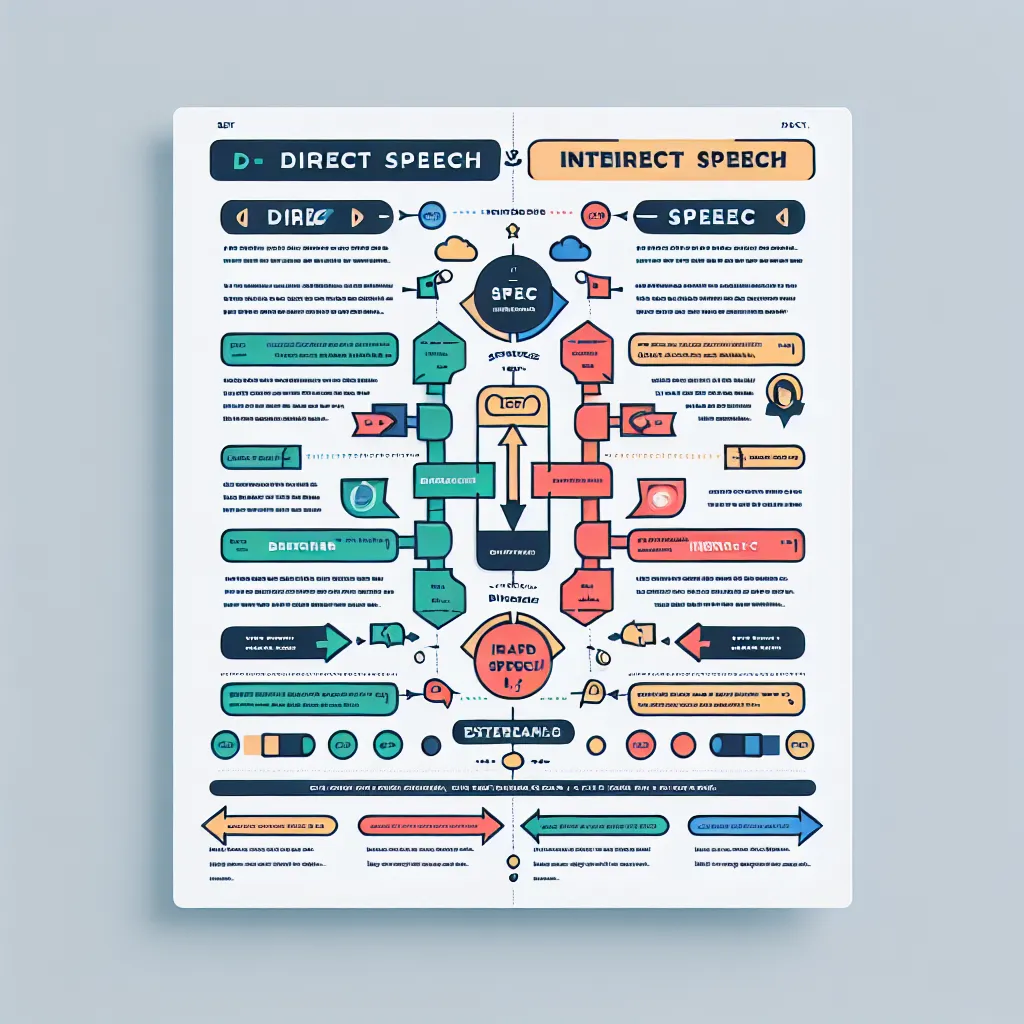Learning English grammar can be challenging, especially when it comes to distinguishing between gerunds and infinitives. Many English learners struggle with this aspect of the language, but with the right strategies and practice, you can master these forms and use them confidently. In this comprehensive guide, we’ll explore effective ways to avoid confusing gerunds and infinitives, providing you with clear explanations, examples, and practical tips.
Understanding Gerunds and Infinitives
Before we dive into strategies for avoiding confusion, let’s briefly review what gerunds and infinitives are:
- Gerunds are verb forms that end in -ing and function as nouns (e.g., swimming, reading, dancing).
- Infinitives are the base form of a verb preceded by “to” (e.g., to swim, to read, to dance).
Both forms can be used as subjects, objects, or complements in a sentence, which is why they can be confusing for learners.
 Gerunds vs Infinitives
Gerunds vs Infinitives
Common Patterns and Rules
1. Verbs Followed by Gerunds
Some verbs are typically followed by gerunds. Memorizing these verbs can help you use gerunds correctly:
- enjoy, avoid, finish, consider, suggest, recommend, mind, quit, resist, practice
Example: “I enjoy swimming in the ocean.”
2. Verbs Followed by Infinitives
Other verbs are usually followed by infinitives:
- want, hope, plan, decide, agree, refuse, promise, learn, offer, forget
Example: “I want to travel the world.”
3. Verbs That Can Be Followed by Either
Some verbs can be followed by either a gerund or an infinitive, sometimes with a change in meaning:
- like, love, hate, prefer, start, begin, continue, try, remember, forget
Example:
- “I like swimming.” (general preference)
- “I like to swim when it’s hot.” (specific preference)
Strategies to Avoid Confusion
1. Learn Verb Patterns
One of the most effective ways to avoid confusing gerunds and infinitives is to learn verb patterns. Create flashcards or use a language learning app to practice verbs and their corresponding patterns.
2. Read Extensively
Exposure to authentic English texts will help you internalize correct usage. Read a variety of materials such as books, articles, and blogs to see gerunds and infinitives in context.
 English Reading Practice
English Reading Practice
3. Practice with Exercises
Engage in targeted practice exercises focusing on gerunds and infinitives. Many grammar books and online resources offer worksheets and quizzes specifically designed for this purpose.
4. Use Mnemonic Devices
Create memory aids to help you remember which verbs take gerunds and which take infinitives. For example:
- “I enjoy -ing things” (for verbs followed by gerunds)
- “I want to do things” (for verbs followed by infinitives)
5. Context Clues
Pay attention to the context of the sentence. Often, the meaning you want to convey will guide you to the correct form.
Example:
- “I stopped smoking.” (I quit the habit)
- “I stopped to smoke.” (I paused in order to smoke)
6. Listen to Native Speakers
Listening to podcasts, watching movies, or engaging in conversations with native speakers can help you develop an ear for correct usage.
Common Mistakes to Avoid
1. Mixing Up Subject and Object Forms
Remember that gerunds can be subjects, while infinitives are often used as objects.
Correct: “Swimming is my favorite sport.” (gerund as subject)
Incorrect: “To swim is my favorite sport.”
2. Forgetting the “to” in Infinitives
Always include “to” when using an infinitive, unless it follows certain modal verbs.
Correct: “I want to learn French.”
Incorrect: “I want learn French.”
3. Using Infinitives After Prepositions
After prepositions, use gerunds, not infinitives.
Correct: “She’s interested in learning Spanish.”
Incorrect: “She’s interested in to learn Spanish.”
Practice Exercises
To reinforce your understanding, try these practice exercises:
-
Fill in the blanks with the correct form (gerund or infinitive):
- I enjoy _____ (read) books.
- She wants _____ (travel) to Paris.
- They finished _____ (paint) the house.
-
Correct the errors in these sentences:
- He suggested to go to the beach.
- I’m thinking about to buy a new car.
- We look forward to meet you.
(Answers: 1. reading, to travel, painting; 2. He suggested going to the beach. I’m thinking about buying a new car. We look forward to meeting you.)
Conclusion
Mastering the use of gerunds and infinitives takes time and practice, but with consistent effort and the strategies outlined in this guide, you can significantly improve your accuracy. Remember to pay attention to verb patterns, practice regularly, and expose yourself to authentic English content. As you become more familiar with these forms, you’ll find that using them correctly becomes second nature.
Keep practicing, and don’t hesitate to consult grammar resources when in doubt. With patience and persistence, you’ll be using gerunds and infinitives with confidence in no time!




